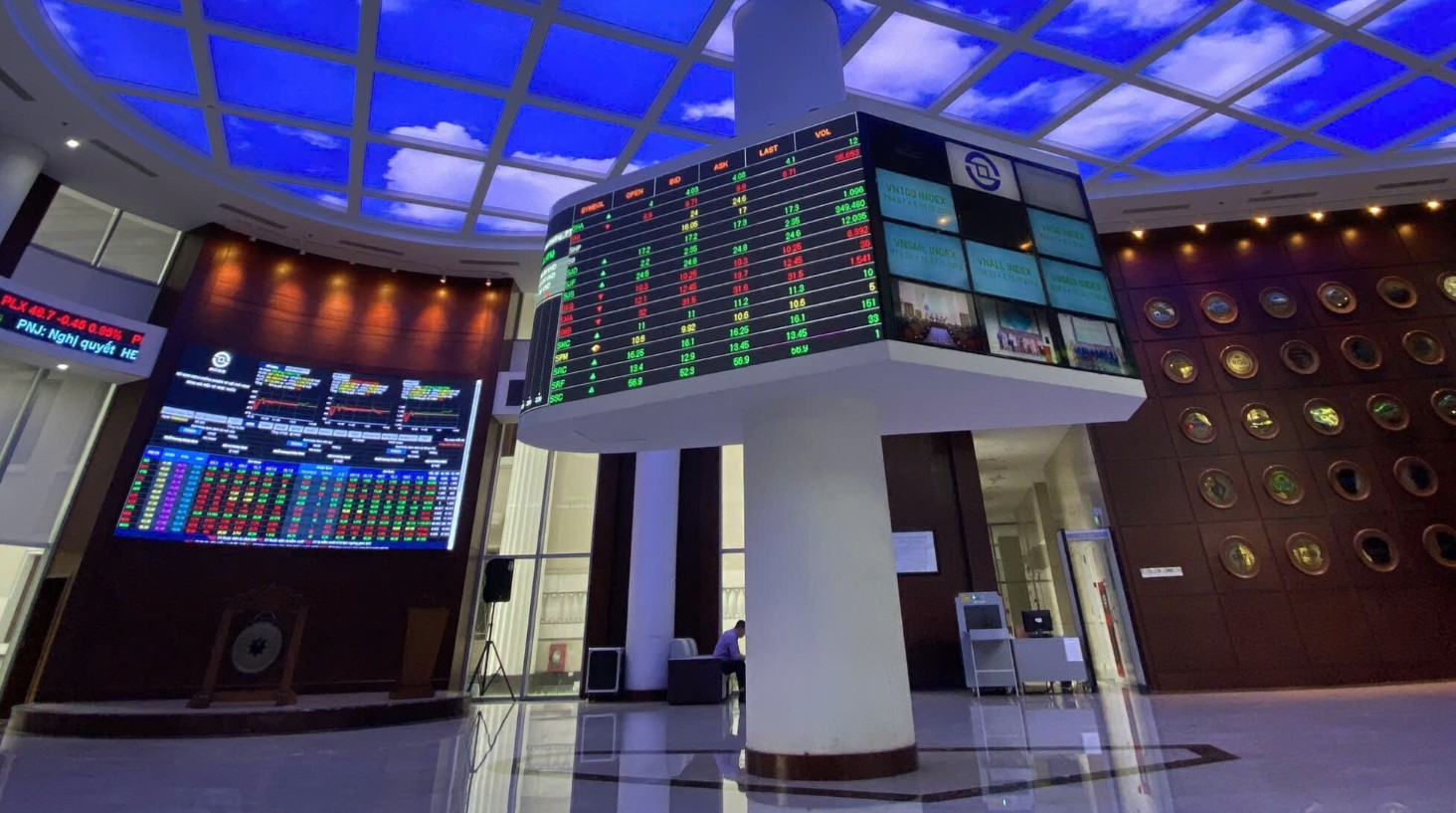Vietnam’s IPO Wave Is About To Return
After years of slowing activity, Vietnam’s IPO market is gearing up for a major comeback. The country saw its last significant peaks in 2007 ($2.55B, 63 deals) and 2018 (driven by Vinhomes)f, with the latter driven by Vinhomes. Since COVID-19, however, IPO activity has dwindled to just a few small deals each year.
That’s about to change. Starting in 2025, a surge of new listings is expected, led by TCBS’s $412 million IPO projected for Q4. Noteworthy recent listings like Vinpearl’s 1.8 billion shares on HoSE and F88’s UPCoM debut (reaching a $381.76M market cap in three sessions) signal early signs of renewed market momentum.

This upcoming wave isn’t just about volume; it’s about transformation. Vietnam is seeing a shift of companies from UPCoM to HoSE, potentially unlocking $20 billion in value, with BSR alone transferring 3.1 billion shares. Behind the scenes, upgrades like the KRX system (launched in May) and relaxed foreign ownership rules are streamlining transactions and encouraging overseas investment, potentially drawing in $6 billion in foreign capital. Meanwhile, analysts project over 80 IPOs worth $54 billion over the next nine years, setting the stage for a new market cycle centered on quality, transparency, and governance.
Overall, Vietnam’s IPO rebound is underpinned by structural reforms, tech upgrades, and rising investor demand. For young investors and professionals, this isn’t just market news; it’s a chance to watch Vietnam mature into a serious player in the regional and global financial landscape. Success will depend on how well companies maintain transparency and execute with long-term vision, but if done right, Vietnam could become a top destination for both local and foreign capital.
Vietnam Launches New Stock Indices To Spotlight Growth And Innovation
The Ho Chi Minh City Stock Exchange (HoSE) has launched two new indices: VNMITECH and VN50 Growth, marking a strategic shift toward highlighting Vietnam’s most dynamic sectors.
VNMITECH focuses on modern industries and technology, covering 30–50 stocks from sectors like raw materials, industrials, and IT. To qualify, companies must have a minimum free-float market cap of 1,500 billion VND (about $59 million) and maintain daily trading volumes above 20 billion VND. Notable names include FPT, DGW, and CMG.
Meanwhile, VN50 Growth tracks 50 large-cap, high-growth stocks from the VNAllshare index, using stricter criteria of over 2,000 billion VND in free-float market cap (around $79 million) and strong liquidity. Both indices will be reviewed biannually, with quarterly technical updates.

These new indices do more than reflect existing market performance. They create a benchmark for future investment products like ETFs, and provide visibility for companies positioned for long-term growth. With VNAllshare covering 312 stocks and a total market cap of $223.6 billion, selecting the top-performing and most innovative firms allows HoSE to align with global trends in thematic investing. This approach strengthens investor confidence and sets the stage for deeper foreign capital involvement, particularly in sectors where Vietnam shows high growth potential.
The launch of VNMITECH and VN50 Growth signals a strong step forward for Vietnam’s capital markets. By putting the spotlight on technology and innovation, HoSE is opening doors for startups and venture-backed firms to become more visible and eventually go public. For young professionals and investors, this move suggests Vietnam’s stock market is evolving to recognize growth and innovation as core investment themes. The shift could boost appetite for early-stage companies and support a more vibrant, tech-driven startup ecosystem.
Vietnam’s M&A Market Heats Up With $786M Surge In July
Vietnam’s M&A market recorded a sharp rebound in July 2025, reaching $786 million across 34 deals. This uptick is largely credited to positive macroeconomic conditions and improved transparency in the real estate sector following the 2024 Land Law. Real estate remained a key driver, with Vinaconex Group selling 70% of Vinaconex ITC to three domestic investors in a deal estimated between $250-300 million, and UOA Vietnam acquiring Ruby Strip Investment for $68 million.

Beyond property, M&A momentum spread across sectors. In tech, GS Microelectronics from North America acquired Sinble Technology Vietnam, while local startups AI Hay and OKXE Vietnam raised $10 million and $14.5 million respectively to fuel AI development. Logistics also gained traction with VETC securing $19.2 million from IFC to expand cashless toll systems. Meanwhile, healthcare and energy deals involved Singaporean investors buying a majority stake in Tam Tri Medical and EnQuest PLC acquiring Vietnamese offshore oil assets. In education, Galaxy Education raised $10 million led by East Ventures to scale its edtech platforms.
The surge in M&A activity reflects growing investor confidence in Vietnam’s economic outlook and sector diversity. With key deals targeting digital transformation, infrastructure, and consumer growth, the market shows strong appetite for long-term strategic partnerships. As Vietnam deepens its integration with global capital flows and regulatory frameworks mature, M&A activity could become a powerful engine for startup growth and ecosystem expansion.
Vietnam Is Shaping Up To Be Asia’s Next Blockchain Hotspot
Vietnam is stepping into the spotlight as a rising hub for blockchain innovation, thanks to major policy shifts and rapid digital adoption. New regulations are making it easier for blockchain projects to operate locally, including a resolution allowing digital asset exchanges and an upcoming crypto exchange pilot from the Ministry of Finance. The country’s Digital Technology Industry Law now formally recognizes digital assets and blockchain, offering long-awaited legal clarity for businesses and investors.

This regulatory progress is attracting serious capital. Binance has committed $1 million to develop blockchain talent through 2027, while One Mount Group (backed by Techcombank) is planning a $200–500 million investment to build a Vietnamese Layer 1 blockchain network. SSI Digital also launched a $200 million blockchain/AI fund with partners like Tether, U2U Network, and AWS. Vietnam’s momentum is also driven by high crypto engagement, ranking 5th globally, with 20% of the population owning digital assets. Projects like NDAChain, which enhances data security through hybrid architecture, show that local innovation is also catching up.
These moves mark a pivotal moment for Vietnam’s digital economy. The combination of clearer laws, international investment, and grassroots adoption is turning the country into a serious contender in Asia’s blockchain race. To fully compete with regional leaders like Singapore and Hong Kong, Vietnam still needs more high-profile startup exits and deeper technical expertise. But if current trends continue, it’s well-positioned to become a launchpad for the next generation of blockchain leaders.
Vietnam’s Startup Ecosystem Levels Up With Policy And Capital Boosts
Vietnam’s startup ecosystem is entering a new phase of growth, supported by major shifts in government policy and domestic capital flow. In 2024 alone, the country attracted $2.3 billion in innovation investment, including $400 million earmarked for high-risk startups. The momentum is driven by policies like Decision 844 and new legal frameworks for digital assets, alongside programs to develop digital enterprises. A key milestone is Decree 94/2025, launched in July, which introduces a regulatory sandbox for fintechs to test credit scoring models, Open APIs, and peer-to-peer lending solutions.

To further strengthen early-stage funding, Vietnam is leveraging tax incentives, risk guarantees, and public-private partnerships. Notably, Resolution 57 sets a 2% GDP target for R&D investment, with 60% coming from the private sector. Resolution 68 enhances this by offering 200% tax deductions for R&D spending and allowing 20% of corporate income to be allocated to tech development. Large corporates like Viettel and VNPT are also playing a critical role by providing startups with access to technology, market channels, and testing environments.
Vietnam’s startup scene is maturing fast, with clear signals of long-term support. The government’s commitment to regulatory flexibility, financial incentives, and public-private collaboration is reshaping the innovation landscape. As policies translate into tangible support, the next challenge lies in building stable platforms, expanding accelerators, and closing infrastructure gaps. With the right frameworks in place, Vietnam’s startups have the potential to become powerful engines of economic and technological advancement.
Genesia Ventures is an early-stage venture capital firm operating in Japan and Southeast Asia, with a strong belief in the long-term potential of Vietnam’s digital economy. Beyond providing capital, the fund actively supports startups through strategic guidance and connections to a broader regional network.
